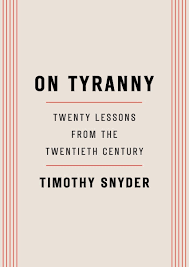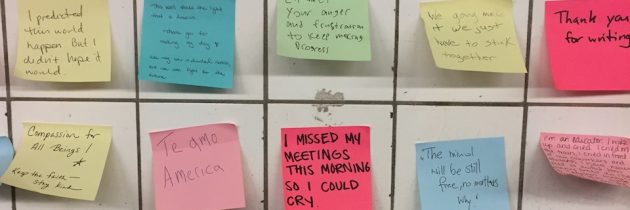A Book for Survival
Tomorrow is both Christmas and the first day of Hanukkah, so things are winding down for everyone except last minute shoppers. The children are looking forward to ripping open their presents, which hopefully will not end up broken by the end of the day. (I need to discuss this topic with Jonah and Reed, because you can’t break your toys and play with them too.) Along with the grandkids, some of the grownups in my life are getting books as gifts, and I’ve been recommending books to others as well because people tend to come to me for book recommendations.
 One of my online mutuals has asked for books about surviving authoritarian regimes. I suppose I’m a good source because I’ve written three historical novels for teen readers on the topic, four if you count the sequel to Gringolandia that is set in the months before the transition from dictatorship to democracy in Chile.
One of my online mutuals has asked for books about surviving authoritarian regimes. I suppose I’m a good source because I’ve written three historical novels for teen readers on the topic, four if you count the sequel to Gringolandia that is set in the months before the transition from dictatorship to democracy in Chile.
The mutual’s call was a general one, not specific to me, and the book that most people cited was Timothy Snyder’s On Tyranny — a book that I’ve written about multiple times. There’s now an attractive graphic-novel version that has also updated his recommendations to take into account the first Trump administration as well as his actions to prevent the peaceful transition to power after losing the 2020 election. Snyder’s earlier book is based on his experiences living in and studying the countries of Eastern Europe and Central Asia that struggled to establish their democracies after the fall of the Soviet Union. Many readers haven’t gone beyond the first recommendation — not to “obey in advance”, as some of the mainstream media have already done. But there are more than a dozen other recommendations that are equally important, including the support of existing institutions such as the independent media and nonprofits.
But the person who requested the book recommendations wanted more than mere survival. She wanted examples of people who managed to keep their sense of joy despite not having the same level of freedom and agency. Authoritarian societies tend to be grim places to live. For instance, today Barcelona is such a hot tourist destination that some people there are begging travelers not to come. Back in 2012, my family spent the Christmas holidays in Barcelona and marveled at the lights, decorations, and general party atmosphere. But during the four decades of Francisco Franco’s dictatorship, the city was known as “Gray Barcelona” — dull, repressed, impoverished, and fearful.
How does one find joy in such an environment? Many people hunker down with family and a small circle of friends. But dictatorships can inspire people who seek adventure and the testing of limits. People like my fictional protagonist Sónia and her rebel boyfriend, experts at sneaking out, seizing freedom “as if” they’re “already free.”
 Sónia is based on real people. One of those who inspired me to look for the joy in even the most repressive places is Cuban writer Reinaldo Arenas, the prolific author of novels, poetry and short story collections, and the memoir Before Night Falls. Before Night Falls was made into a film directed by Julian Schnabel, but I think the book is far better than the film at conveying Arena’s sense of adventure and the joy he took in thumbing his nose at the Castro regime. Arenas was always a rebel, fighting to escape rural poverty and his family’s and community’s strict morality as he discovered his sexuality. The memoir portrays a gay man in a notoriously homophobic society, a person whom no person and no government could control. He seized on the freedom of his imagination to live a rich underground life, which he then depicted in his stories. Several times agents of the communist regime discovered where he’d hidden his manuscripts, and they destroyed them. He then rewrote them, only better — using the regime’s repression as a tool for revision. His joy lay in the process of writing, and in the process of defiance. Whether or not the work was actually published didn’t matter, though he did manage to publish more than 20 books in Cuba, elsewhere in Latin America, and in translation into multiple languages in his short life. (He died in 1990 of AIDS-related complications at the age of 47, after fleeing Cuba during the 1980 Mariel Boatlift.)
Sónia is based on real people. One of those who inspired me to look for the joy in even the most repressive places is Cuban writer Reinaldo Arenas, the prolific author of novels, poetry and short story collections, and the memoir Before Night Falls. Before Night Falls was made into a film directed by Julian Schnabel, but I think the book is far better than the film at conveying Arena’s sense of adventure and the joy he took in thumbing his nose at the Castro regime. Arenas was always a rebel, fighting to escape rural poverty and his family’s and community’s strict morality as he discovered his sexuality. The memoir portrays a gay man in a notoriously homophobic society, a person whom no person and no government could control. He seized on the freedom of his imagination to live a rich underground life, which he then depicted in his stories. Several times agents of the communist regime discovered where he’d hidden his manuscripts, and they destroyed them. He then rewrote them, only better — using the regime’s repression as a tool for revision. His joy lay in the process of writing, and in the process of defiance. Whether or not the work was actually published didn’t matter, though he did manage to publish more than 20 books in Cuba, elsewhere in Latin America, and in translation into multiple languages in his short life. (He died in 1990 of AIDS-related complications at the age of 47, after fleeing Cuba during the 1980 Mariel Boatlift.)
Before Night Falls was first published in Spanish in 1992 and in English translation, by Dolores M. Koch, in 1993. It made the 10 Best Books list from The New York Times that year, and is now in a Penguin Classic edition because it is a classic — a celebration of the freedom of the mind and the imagination despite the harshest repression.







